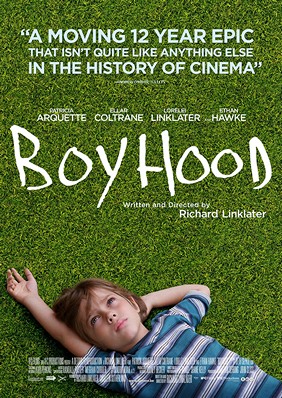It’s easy to pass off Richard Linklater’s film “Boyhood” as just another coming of age story about a young boy passing through that awkward stage between childhood and adulthood while learning a little something about life in the process. But “Boyhood” is so much more than that, delving deeper than any of its predecessors. It’s a journey, one with a series of events and experiences that slowly grow a boy into a man.
What makes this film so unique is the way it was filmed. Linklater took a completely different approach to storytelling. By filming over a period of 12 years, the actors gradually age and change as time passes. The lead, Ellar Coltrane, was cast when he was just six years old and played the part of Mason until he was 18. In this way, “Boyhood” feels like a documentary, an intimate look into the life of an ordinary boy growing up in suburban Texas. It perfectly captures the rocky transition into adult life that everyone goes through at some point, without embellishing for theatrical appeal. Much like its protagonist, “Boyhood” doesn’t try too hard to be exciting or entertaining, instead focusing on effectively conveying the true experience of life.
As time passes, the characters each change in their own way, along with the actors who play them. In the early years, Mason’s mom Olivia (Patricia Arquette) is a newly single mom who is only trying to make a better life for her children. As she moves from husband to husband, each ending up either alcoholic or abusive, she ages. We see her face slowly grow harsher, beaten down and her once slender figure filled out with age. His hardly present father, Mason Sr. (Ethan Hawke) loses his strong jaw and chiseled look as he ages and learns to grow up in his own way. Watching this change strengthens the power of the story and creates a strong emotional connection to these characters.
Boyhood is an exceptional movie, one that no doubt will pave the way for future films of its kind. Linklater’s impressively ambitious project is one of the most honest films of this decade and reflects the unpredictable nature of growing up.


